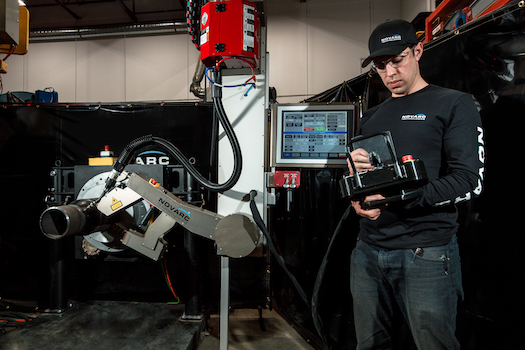Angel investing needs a boost: report

The growth of angel investment in Canada over the past decade has not kept pace with the growth of venture capital investment, according to a report from the National Angel Capital Organization (NACO), with implications for the country’s innovation economy. The findings note a majority of companies reaching the point of merger, acquisition, or IPO were originally angel-backed, so that in the next decade there could be fewer firms achieving such milestones, unless angel support increases.
“What you have is a reverse-funnel situation,” NACO CEO Claudio Rojas explained to Research Money. “The beginning of the funnel should be the widest, and it should get more narrow as you move toward venture and growth capital. Instead, it’s the opposite: you have a narrow beginning of the funnel, and then it gets really wide.”
If there are fewer Canadian firms offering adequate returns to investors, he added, that capital might move to another jurisdiction where more firms are available at this stage of development.
The NACO report indicated venture capital investment grew 10-fold from 2010-2022, but angel investment grew just five-fold. While both types of investment might vary over shorter terms, such a longer-term trend reveals a more fundamental shift in investment strategies.
Rojas pointed to the federal government’s Venture Capital Action Plan (VCAP) as a cause for such a shift. Launched in 2013 to promote the sustainability of the country’s VC industry, VCAP made $340 million available to establish four private sector-led funds, as well as $50 million for four existing VC funds. While the rationale for this initiative might have been well intentioned, he suggested, the growth of these funds altered the overall flow of investment.
“What those have done effectively is incentivized private-sector capital into the venture capital ecosystem,” Rojas concluded. “At the earliest stages, there hasn’t been a proportionate level of policy levers pulled. So then you have organic growth, but not the same level of manufactured growth or amplified growth, that you see in venture.”
Unless more money can be found for angel investment, he warned, there will be fewer innovative Canadian start-ups in a position to scale-up. At the same time, the capital that is available may be more likely to be found in major centres, rather than being distributed across the country.
“If you’re an entrepreneur in Saskatchewan or Manitoba, and you could build the next multi-billion dollar company, but there’s no local capital available to you, one of two things is going to happen,” said Rojas. “You’re going to take a nice six-figure cheque from the local consulting firm that wants to hire you, because you have to provide for your family, or you’re going to leave your home-town.”
Mike Amos, Managing Director of the Southeastern Ontario Angel Network, agreed.
“It is really a local game,” he told Research Money. “What people don’t understand, and they need to understand, is that it is about relationships. Angels are staring at so much risk.”
According to Amos, from the perspective of an angel investor, innovation is less about any particular technology or business idea, and mostly about supporting people who will shepherd their vision through an uncertain path to market.
“I de-risk my angel investments by having a relationship with those entrepreneurs, knowing them well enough that I can judge their character and their fortitude,” he said, recalling one of his favourite regional examples, Brockville-based Northern Cables. The company emerged from the 1996 collapse of Phillips Cables, an electrical cable manufacturer unable to compete in the wake of the North American Free Trade Agreement’s market shifts.
A group of former Phillips employees joined forces to establish the new company, with the aid of local angel investors, who helped them obtain facilities and seed funding. The firm became active in a national manufacturing association, helping set standards for licensing these products, keeping abreast of changes in the industry, and updating its product lines accordingly.
Today, Amos said, Northern Cables has annual revenue in the hundreds of millions of dollars, employing some 300 people in this part of eastern Ontario. He credits the restoration of this economic backbone to highly motivated angel investors, who took a chance on a group of equally motivated former company employees.
“That’s how angel investing could and should work, with every company you’re investing in,” he concluded. “And if you talk to our most prolific investors, they are parochial. They want to invest in their home town.”
R$
| Organizations: | |
| People: | |
| Topics: |
Events For Leaders in
Science, Tech, Innovation, and Policy
Discuss and learn from those in the know at our virtual and in-person events.
See Upcoming Events
You have 0 free articles remaining.
Don't miss out - start your free trial today.
Start your FREE trial Already a member? Log in
By using this website, you agree to our use of cookies. We use cookies to provide you with a great experience and to help our website run effectively in accordance with our Privacy Policy and Terms of Service.





